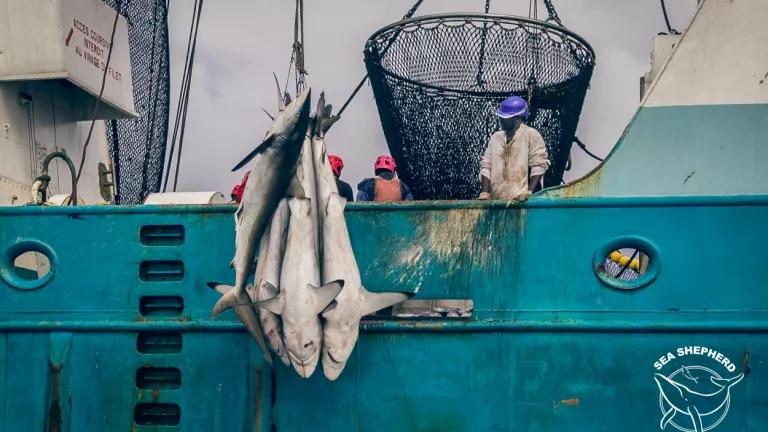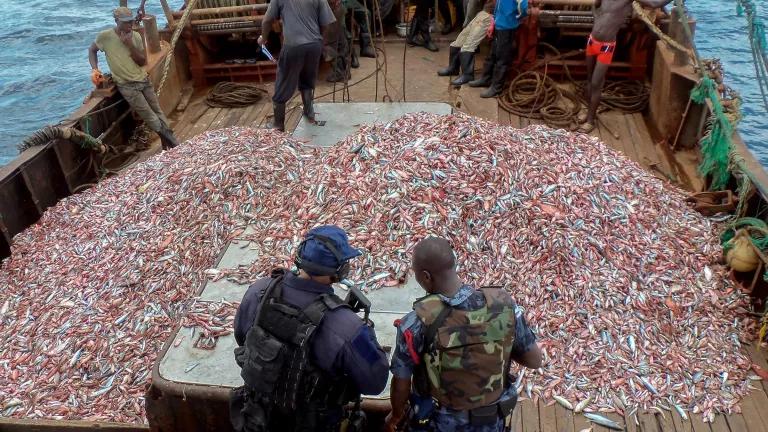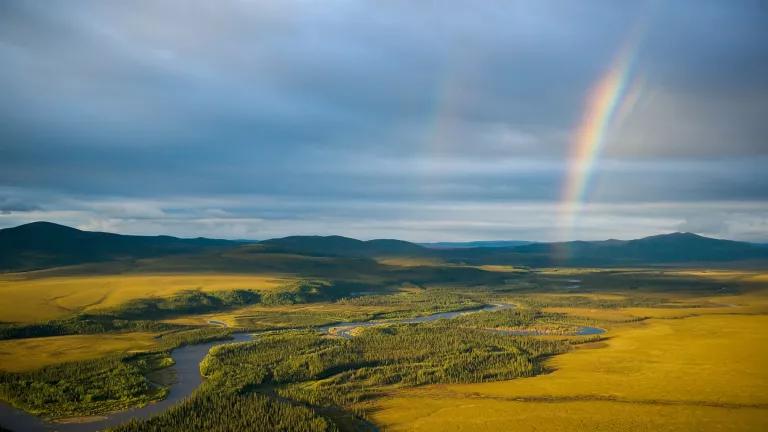NRDC Petitions to Save Remaining Gulf of Mexico Whales
To help ensure the survival of this desperately endangered species, NRDC and our partners are asking the government to establish rules to prevent deadly vessel strikes.

The Gulf of Mexico whale was recently discovered to be a unique species of great whale known only to live in the U.S. waters of the Gulf of Mexico. It is our whale. Harrowingly, the species is deeply imperiled—only about 50 individuals remain and spend most of their time within the waters of a single submarine canyon just south of the Florida panhandle.
That’s why NRDC and our partners have filed a petition with the federal government to protect the critically endangered Gulf of Mexico whale from vessel strikes, which threaten the species with extinction. The petition asks the National Oceanic and Atmospheric Administration (NOAA) Fisheries to adopt regulations establishing a year-round mandatory “Vessel Slowdown Zone,” requiring all vessels to travel at 10 knots or less within the whale’s core habitat. The petition also asks for other vessel-related regulations, including a restriction on vessel passage through the whale’s habitat at night and improved monitoring of both whales and vessels.

Gulf of Mexico whale core habitat area (purple area) overlaid on a model Gulf of Mexico whale suitable habitat.
Gulf of Mexico whales suffered significant losses due to the Deepwater Horizon spill and face a myriad of other threats. Their habitat is severely diminished due to oil and gas development, and they are at continuing risk of oil spills and oil spill response. Underwater noise pollution, plastics and other marine debris, and fisheries entanglements all pose additional threats.
If more than one whale is lost every 15 years, the species may never be able to recover. Deaths from vessel strikes alone are highly likely to exceed this number. Immediate management actions are therefore needed to reduce the risk of vessel strikes and other vessel-related impacts of the species is to survive. As the Gulf of Mexico whale is protected by both the Endangered Species Act and the Marine Mammal Protection Act, these actions are also required by law.

People gather on a beach in Tampa Bay, Florida, near the dead body of a lactating female Gulf of Mexico whale in 2009. The whale was killed by a ship strike.
Given that slower ships are far less likely to fatally strike whales, the Vessel Slowdown Zone is the most effective way for NOAA Fisheries to protect the Gulf of Mexico whale and fulfil its legal obligation. Slower ships also make significantly less noise and are less likely to disturb whales while they are engaged in important behaviors like feeding and socializing.
Science also shows that the whales spend most of their time at night resting just below the surface, in the direct path of the draft of oncoming vessels. The petition requests that vessels only traverse the Gulf of Mexico whale’s core habitat during daylight hours, when the whales are spending most of their time feeding at depth and when they can be more easily spotted by vessel crew.
It is critical that NOAA also implement the means to monitor the vessel slowdown zone and ensure that human activities within the zone comply with the associated regulations, identifying violators and holding them accountable.
The agency must expedite its response to this petition—filed by NRDC, Center for Biological Diversity, Defenders of Wildlife, Earthjustice, Healthy Gulf, and New England Aquarium—and act quickly to propose, evaluate, and finalize a vessel slowdown zone and the supporting vessel-related mitigation measures. It is the only chance for this species to survive and recover.




